
Who are the top tech vendors supplying the latest technologies to organizations in this data-driven, hybrid IT infrastructure era?
Through a review of the top enterprise IT partners and their corresponding partner ecosystems and alliances, these are the partners enterprise organizations can’t live without. This list largely excludes IT vendors whose products can be found under the hood of many products – for example, there’s only one chip maker – and instead focuses on vendors more likely to interact directly with end users, IT buyers, and service providers.
This article looks at the top 30 vendors in IT and their portfolio of solutions, followed by honorable mentions and a brief analysis. Even end users who might not deal directly with these vendors would be surprised how often their technologies power their managed service providers (MSPs) and other solutions.
Top 10 Enterprise Technology Vendors

Adobe
Launched in 1982 from a Silicon Valley garage, Adobe is a leading software provider for digital content, multimedia, animation, and graphics. The Adobe Creative Cloud is one of the most popular SaaS offerings offering graphic design, web development, photography, and video editing in the cloud era. The design and experience specialist supplies professionals up to global enterprise organizations with the tools to maximize user and customer experiences.
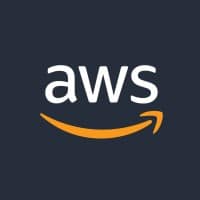
Amazon Web Services (AWS)
Amazon Web Services (AWS) has become the dominant cloud infrastructure and services provider in a decade. Alongside the shift from on-premises to hybrid IT environments, AWS is the go-to cloud vendor for organizations small and large. AWS offers an industry-leading stack of cloud-based products for compute, storage, databases, networking and CDN, analytics, cybersecurity, and more.
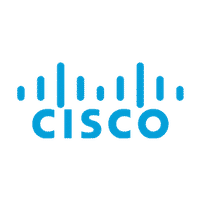
Cisco
Cisco is another industry veteran with almost four decades of experience serving enterprise organizations’ hardware, software, and telecommunications demands. The networking giant’s extensive portfolio spans enterprise network equipment, collaboration solutions, cloud computing, data center management, and a whole stack of security products. Cisco continues to lead enterprises into the next generation of networking with technologies like the Secure Access Service Edge (SASE).

Google, the core subsidiary of Alphabet, is the search engine turned IT giant offering solutions for software, hardware, cloud computing, advertising, and e-commerce. Started in 1998, Google’s growing portfolio of products addresses web and cloud software needs for individuals, developers, and businesses. Two of the enterprise vendor’s most notable solutions include Google Workspace bundling a handful of office productivity products for organizations and Google Cloud Platform for a robust stack of cloud-based services.
Read more: Best Email Security Providers & Services
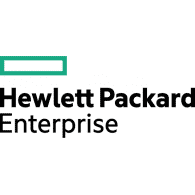
HPE
Spun off from Hewlett-Packard in 2015, HPE specializes in edge-to-cloud technologies offering solutions for storage, virtualization, business applications, and deep learning. HPE’s products include a suite of cloud services and notable intelligent edge companies Aruba Networks and Silver Peak Systems, contributing to the company’s SD-WAN approach. Other product offerings include services for high-performance computing (HPC), containers, hyperconverged infrastructure, and security.
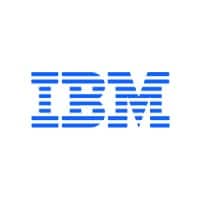
IBM
IBM remains one of the most innovative companies globally, consistently earning the most annual patents in the United States. After pioneering hard disk drives, SQL, and dynamic random-access memory (DRAM), IBM continues to develop some of the best solutions in analytics, data management, business operations, cybersecurity, and IT infrastructure. With over 170 services, IBM Cloud’s portfolio offers IaaS, PaaS, and SaaS products for compute, storage, and machine learning.
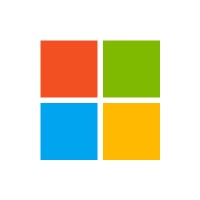
Microsoft
One of the biggest names in information technology, Microsoft is responsible for the world’s leading proprietary operating system with Windows and Windows Server, the SQL Server database, the Microsoft Office Suite, Internet Explorer, and a range of consumer electronics. Today, Microsoft’s portfolio expands to entertainment through its line of Xbox and PC gaming consoles and a competitive cloud computing platform with Microsoft Azure.
Also read: Top PSA Tools & Software for MSPs | Professional Service Automation
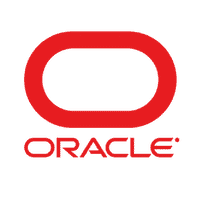
Oracle
The database pioneer Oracle launched in 1977 and continues to be one of the largest software developers in the world with leading solutions for enterprise application management and cloud computing. Oracle’s enterprise software suite covers enterprise resource planning (ERP), human capital management (HCM), customer relationship management (CRM), supply chain management (SCM), and more. Oracle is one of the most comprehensive global IT vendors, thanks to an active acquisition strategy.
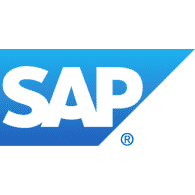
SAP
SAP S/4HANA is arguably one of the most famous enterprise software suites offering an in-memory database and SAP’s business suite products. SAP is also one of the most prominent and pioneering software vendors for ERP, HCM, CRM, and SCM. The German enterprise software company’s other core offerings include financial and spend management and a business technology platform covering application development, automation, analytics, artificial intelligence (AI), and integrations.
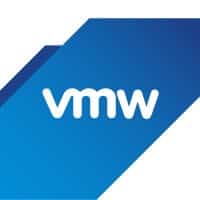
VMware
VMware is the virtualization giant with over two decades of experience atop the industry it helped build. The Palo Alto-based company was the first to virtualize the x86 architecture successfully, and today its portfolio extends to endpoint protection, edge infrastructure, cloud computing, and cybersecurity. VMware vSphere is one of the leading server virtualization solutions. At the same time, acquisitions like VeloCloud, Carbon Black, and Avi Networks put the vendor on track to be dominant for years to come. According to reports, VMware may soon be acquired by Broadcom, the chip maker driving many enterprise systems today.
Read more: Top Network Security Service Providers
Major Players in Hybrid Infrastructure and Automation
| Automation Anywhere | Blue Prism |
| Dell Technologies | MuleSoft |
| NetApp | Pegasystems |
| Red Hat | Salesforce |
| ServiceNow | UiPath |

Automation Anywhere
Almost two decades after Automation Anywhere entered the market, the automation specialist has one of the strongest footholds in the robotic process automation space (RPA). The San Jose-based vendor’s most recognized solution in Automation 360 offers organizations an advanced automation tool for deploying artificial intelligence and autonomous robots. The enterprise vendor serves over 3,200 clients with an impressive 2,100 business partners.

Blue Prism
Across the pond, Blue Prism is another leading vendor in the RPA and intelligent system space providing clients with a robust RPA platform to streamline business processes. Founded in 2001, Blue Prism helps clients discover automation opportunities, design workflows, and execute and scale a sustainable digital workforce. Thanks to the Blue Prism Digital Exchange (DX), organizations can access more than 2,000 pre-built automation components.
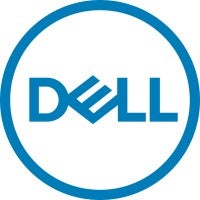
Dell
The Dell Technologies brand speaks for itself with a long history of serving consumer, small business, and enterprise IT infrastructure needs. Though Dell’s had its share of spin-offs, its portfolio remains strong, with leading solutions covering storage, backup, hyperconverged infrastructure, and integrated systems. For data center infrastructure management, it’s hard to beat the enterprise features and performance provided by Dell EMC’s offerings.
Also read: Starting an MSP Backup and Recovery Service
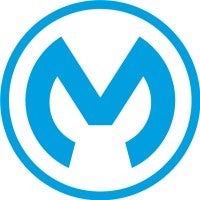
MuleSoft
In an increasingly connected world and interoperability among IT systems critical, MuleSoft specializes in integration software for connecting the universe of devices, data, and applications across modern IT environments. Launched in 2006, MuleSoft’s AnyPoint Platform offers a comprehensive API development pipeline for building APIs, including virtual deployment into the array of architectures and testing for consistent data security. MuleSoft’s quick success led to its acquisition by another top IT vendor, Salesforce, in 2018 for $6.5 billion.

NetApp
NetApp’s roots are in storage and data management, celebrating thirty years and a decade in the Fortune 500. Today, its more extensive portfolio extends to cloud services, DevOps, enterprise application management, and more. NetApp remains a leader in primary and object storage and integrated systems. At the same time, its other notable products include virtual desktop infrastructure, big data analytics, IT automation, and cloud solutions for AWS, Azure, Google Cloud, and IBM Cloud.
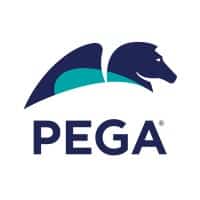
Pegasystems
Founded in 1983, Pegasystems has hit its stride in the cloud era offering a low-code application platform designed for business process management (BPM), case management, DevOps, and user experience (UX) design. The Cambridge, Massachusetts-based enterprise vendor’s platform capabilities include chatbots and virtual assistants, real-time intelligence, and workforce intelligence. For automation services, Pega covers RPA and developing automation for sales forces and business processes.

Red Hat
Red Hat is another virtualization giant with leading solutions for virtualizing servers and managing the software development lifecycle in the era of microservices. The Raleigh, North Carolina-based vendor’s products include Ansible for application release orchestration, OpenShift and Jboss for application platforms, Ceph Storage for distributed file system and object storage, and Red Hat Enterprise Linux (RHEL). Red Hat’s other technologies address network and configuration automation, stream processing, cloud management, and identity management.
Read more: Top Cloud & Application Migrations Tools
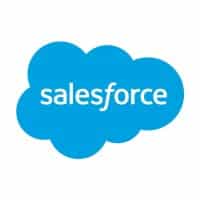
Salesforce
The undisputed sales force automation and B2B marketing space leader is the eponymous Salesforce. Launched in 1999, Salesforce’s growth as a leading vendor came alongside the boom and adoption of cloud services. The Salesforce stack of CRM solutions covers sales, marketing, commerce, analytics, and a low-code development platform to build engaging and practical applications. The digital experience specialist’s other technologies include partner relationship management (PRM), configure-quote-price (CPQ) software, and business intelligence.
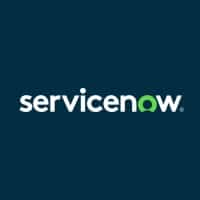
ServiceNow
ServiceNow is the leading choice for IT service management (ITSM) tools addressing workflows for IT environments, employees, customers, and creators. The Santa Clara, California-based company has an extensive portfolio of cloud-based products across ITSM, operations management (ITOM), business management (ITBM), and asset management (ITAM). ServiceNow’s other product segments include governance, risk, compliance (GRC), DevOps, security services, and service delivery for HR, workplaces, and legal operations. For one-stop shops, it’s hard to beat ServiceNow’s stack of solutions.

UiPath
UiPath is the third RPA-centric vendor to make this list and points to how much value enterprise organizations put on automating unnecessary or inefficient processes. Initially founded in Romania in 2005, UiPath’s headquarters are in NYC, where the software provider is a leading RPA choice for enterprise organizations. The UiPath Platform includes comprehensive tools for enterprise automation, including a low-code application development platform, AI orchestration, process tracking and analytics, and more.
Also read: Top Vendor Risk Management (VRM) Software & Tools
The Vendors Driving the Data Analytics Era

Appian
Emphasizing the popularity of low-code application platforms, Appian is the enterprise software company helping clients develop robust applications for commercial or internal use. The Washington, D.C.-based vendor’s platform includes process mining, security and compliance, automation capabilities, and low-code development.
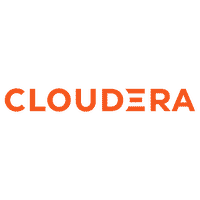
Cloudera
Enterprise data management company Cloudera started in 2008 to help clients manage the imminent rise of cloud data. Today, the Cloudera Data Platform (CDP) is a top solution for securing and optimizing hybrid cloud data management. Cloudera’s specializations include data storage, analytics, machine learning modeling, and event stream processing.
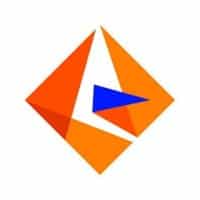
Informatica
Informatica is another leading provider of data management solutions with three decades of experience and a portfolio covering data integration, analytics, cloud modernization, governance, and customer experience. The enterprise data company’s other products include integration Platform as a Service (iPaaS), master data management, and data engineering.
Read more: Top Cloud Migration Services Providers
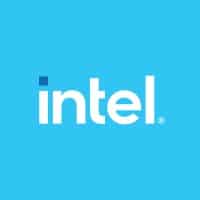
Intel
Intel is the world’s leading semiconductor developer with a portfolio of data center and device needs, including processors, servers, SSDs, GPUs, ASICs, FPGAs, and more. Intel is one of the most critical partners in the game, with five decades of innovation and partnership within the broader IT ecosystem, offering the latest processing power and workplace PC devices.
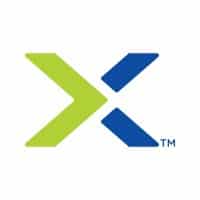
Nutanix
Launched in 2009, Nutanix specializes in data center modernization, application optimization, and cloud infrastructure management. Clients can choose from a list of solutions covering unified storage (file, block, and objects), end user computing with Desktop as a Service (DaaS), and tools for managing data in multi-cloud environments. Notable Nutanix products address hyperconverged infrastructure, server virtualization, storage, and disaster recovery.
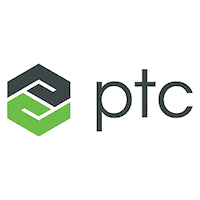
PTC
Boston-based PTC has long been a leading software developer for computer-aided design (CAD), manufacturing (CAM), engineering (CAE) models, and product lifecycle management (PLM). Today, the enterprise software vendor continues to address industry needs with the latest in augmented reality (AR), industrial IoT (IIoT), and service lifecycle management.
Also read: Top Cloud Managed Service Providers
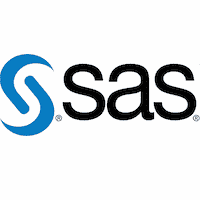
SAS
Born from a North Carolina State University project, SAS has over 45 years of experience developing analytics software for clients to make the most of data and decision-making. SAS’s solutions include AI and ML modeling, application security testing (AST), security services, and IoT solutions for the latest in business intelligence and insights.

Snowflake
Celebrating its first decade this year, Snowflake is a leading cloud data warehousing vendor with solutions for Amazon S3, Microsoft Azure, and Google Cloud Platform. Based in Bozeman, Montana, Snowflake allows clients to store vast amounts of data for use cases like marketing analytics, product development, security data lakes, and other IT applications.
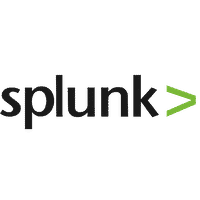
Splunk
Splunk is another top vendor offering data analysis and integration tools to enhance security and observability for enterprise organizations. Through the Splunk platform, clients can use streaming, orchestration, ML, and indexing to transform raw data into actionable insights. Splunk’s product portfolio includes security information and event management (SIEM), security orchestration, automation and response (SOAR), user behavior analytics (UEBA), and infrastructure monitoring.

Tableau
Finishing the list is business intelligence specialist Tableau, with a comprehensive platform for data and analytics management. Clients can integrate data management, visualization, collaboration, and governance through the Tableau Platform to maintain and optimize the data pipeline. Tableau’s success led to its acquisition by Salesforce for $15.7 billion in 2019.
Also read: Best Remote Desktop Software
Honorable Mention Top IT Vendors
| Acquia | Coupa | Okta |
| Anaplan | Dassault | OpenText |
| AppDynamics | Databricks | Qlik |
| Apple | Dynatrace | Siemens |
| Blue Yonder | ESRI | Software AG |
| BMC | Guidewire | Symantec |
| CA Technologies | Hitachi Vantara | Talend |
| Celonis | Infor | Teradata |
| Citrix | Micro Focus | TIBCO |
| Commvault | MongoDB | Workday |
What Is an Enterprise Technology Vendor?
Information technology vendors are the companies developing the electronics, hardware, and software capable of fueling modern IT infrastructure. IT vendors come in all shapes, sizes, and technology focuses, and the reality is that no one company can meet the increasingly complex needs of hybrid IT environments.
From established technology brands (IBM, Microsoft, Oracle) to a host of companies started in the new millennium (AWS, MuleSoft, UiPath), innovation continues to be the most critical component to success for enterprise technology vendors.
Hot Solution Spaces for Enterprise Technology Vendors
The most referenced solution spaces for enterprise IT vendors include:
- Cloud-based services including IaaS, PaaS, and SaaS
- Data integration, analytics, and business intelligence (BI)
- Edge infrastructure, IoT devices, and ICS/OT management
- Software-defined wide-area networking (SD-WAN)
- Multi-experience development platforms and multichannel marketing hubs
- Primary storage, distributed file storage, and object storage
- Robotic process automation (RPA) and business process automation (BPA)
- Virtualization and application deployment through microservices
The featured IT vendors represent some of the most important on-premises, virtual, and software-based tools with plenty of crossover in capabilities. Considering the number of top technology companies launched in the last fifteen years, it’s difficult to imagine how much can change in the fifteen years to come.
Read more: Best Managed Detection and Response (MDR) Services for SMBs
